
Handling payroll can be stressful. One small mistake can cause delays, fines, or frustrated employees. For many business owners, it’s a constant source of worry. Payroll outsourcing offers a way out. By letting experts manage your payroll, you save time, reduce errors, and stay compliant.
The market for payroll outsourcing reached $12.44 billion in 2025 and is expected to grow to $16.87 billion by 2030, showing that more businesses are choosing this solution. Explore how payroll outsourcing works, its benefits, and how to decide if it’s right for your business.
- What Is Payroll Outsourcing?
- Why Should You Consider Outsourcing Payroll?
- How Does Payroll Outsourcing Work + Services
- How Much Does Outsourcing Payroll Cost?
- What Are the Cons of Payroll Outsourcing?
- How To Choose a Payroll Outsourcing Provider
- Pay People, Not Penalties
- Payroll Outsourcing FAQs
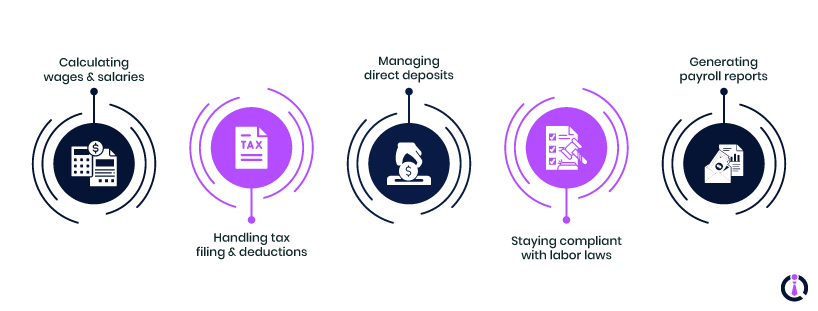
Payroll outsourcing means hiring an outside company to handle your payroll tasks instead of doing them in-house. Think of it as passing the payroll baton to experts who know the rules, the deadlines, and all the tricky details so you don’t have to.
These experts can take care of a bunch of tasks that come with paying your team, including:
- Calculating wages and salaries
- Handling tax filing and deductions
- Managing direct deposits
- Staying compliant with labor laws
- Generating payroll reports
You can use payroll software to handle it internally if you can, but outsourcing is a good idea if it gets tedious and complex. Outsourcing payroll helps you reduce mistakes, save time, and keep your employees happy, without the stress of doing it all yourself.
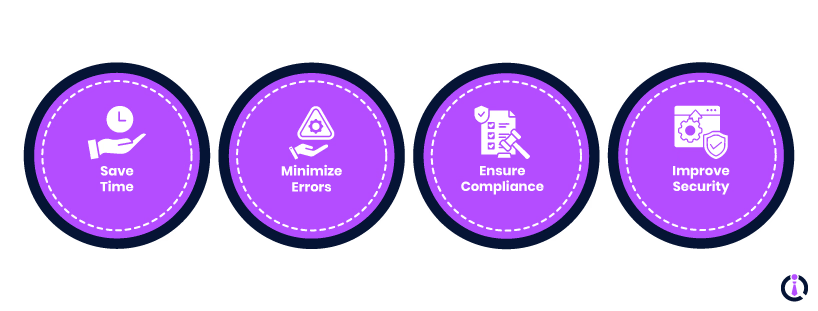
Outsourcing payroll isn’t just about handing off a task — it’s about making your business run smoother. Here are some key reasons why letting experts handle payroll is a good idea.
Save Time
Payroll can eat up hours every week. By outsourcing, your team can focus on what really matters: growing the business, improving products, or working on HR apps for small businesses that boost efficiency. Less time crunching numbers means more time for strategy.
Minimize Errors
Even small mistakes in wage calculations or tax filings can cause headaches. Payroll providers use automated systems and trained staff to reduce errors, ensuring that payments and deductions are accurate. They handle things like income tax returns, quarterly payroll tax reports, Social Security contributions, and unemployment insurance filings — all the paperwork most businesses dread.
Ensure Compliance
Laws and regulations around payroll change constantly. Professional payroll firms keep up with these updates, handling all necessary government filings and minimizing the risk of non-compliance penalties — whether you’re dealing with local rules or using international payroll software for global teams.
Improve Security
Payroll data is highly sensitive, including salaries, bank details, and tax information. Reputable outsourcing providers invest heavily in advanced technology, encryption, and secure backup systems to protect this information.
Compared to many in-house setups, their security measures are more robust, reducing the risk of data breaches. This means your employees’ personal data and your company’s financial information are safer, giving you peace of mind and reducing potential liability.
Reduce Costs and Administrative Burden
Outsourcing payroll helps you avoid expenses tied to software, staff training, and additional HR or finance personnel. It also lightens the administrative workload, freeing your team to focus on strategic tasks like hiring, employee growth, and succession planning . With predictable, all-inclusive costs, you can budget more effectively and scale your business without worrying about payroll becoming a bottleneck.
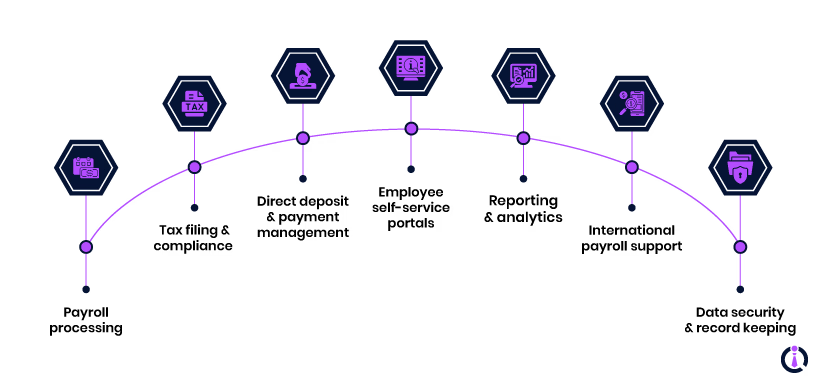
Payroll outsourcing starts with choosing a provider that fits your business needs. Once onboard, the provider connects with your HR or finance team to gather employee details, salary structures, tax information, and payment schedules. From there, they take over the heavy lifting, using specialized software and expert staff to make sure everyone gets paid correctly and on time.
Each pay cycle, you simply share any updates like new hires, promotions, or overtime hours, and the provider processes everything behind the scenes. They also handle tax filings, compliance checks, and reporting, so you stay informed without being buried in paperwork.
Services typically include:
- Payroll processing: Calculating employee wages, overtime, and deductions accurately each pay cycle
- Tax filing and compliance: Handling income tax returns, payroll tax reports, Social Security or provident fund contributions, and ensuring everything aligns with government regulations
- Direct deposit and payment management: Transferring salaries directly into employee bank accounts on schedule
- Employee self-service portals: Giving staff access to pay stubs, tax documents, and leave balances through online HR apps for small businesses
- Reporting and analytics: Providing detailed payroll reports to track labor costs, spot trends, and support better financial planning
- International payroll support: For businesses with global teams, services include handling multiple currencies, local tax laws, and compliance using international payroll software
- Data security and record keeping: Protecting sensitive employee information with encryption, backups, and secure systems
The cost of payroll outsourcing depends on your business size, the number of employees, and the services you choose. Most providers charge either a flat monthly fee plus a per-employee fee. For example, you might pay around $100 per month plus $5 per employee. Some providers also offer tiered pricing if you need extra features like international payroll software, benefits administration, or time-tracking software integrations.
While outsourcing may seem like an extra expense at first, it often saves money in the long run. You avoid costs tied to payroll software, staff training, compliance mistakes, and penalties. Plus, it frees up your HR team to focus on higher-value tasks like hiring and employee growth.
Here’s a quick cost comparison of in-house vs. outsourced payroll
Factor | In-house payroll | Outsourced payroll |
| Software and licenses | $50-$200/month for payroll software | Usually included in provider’s fee |
| Staffing costs | HR/finance staff salaries + training | No extra staff needed |
| Compliance risk | Higher — laws change often | Lower — provider stays updated |
| Data security | Dependent on the in-house IT setup | Advanced encryption and backups |
| Total cost | Can be unpredictable | Flat fee + per-employee cost (predictable) |
Sample Pricing Scenario for Payroll Outsourcing
Let’s say you run a small business with 20 employees. With a provider charging $100/month + $5 per employee, your monthly payroll outsourcing cost would be:
- Base fee: $100
- Employee fee: 20 × $5 = $100
- Total = $200 per month
That’s often cheaper than paying for payroll software, training staff to use it, and staying on top of every filing yourself.
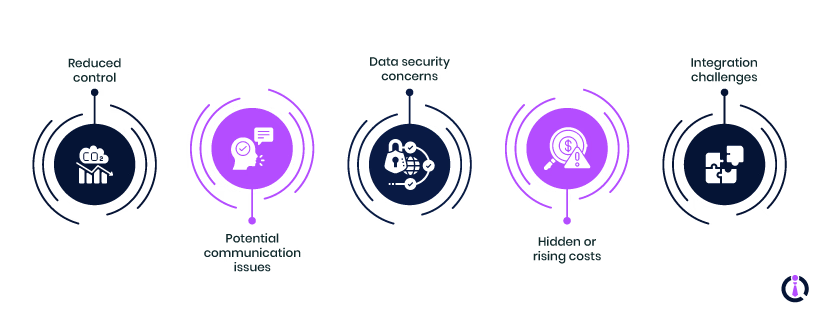
Payroll outsourcing has plenty of benefits, but it’s not without drawbacks. Before making the switch, it’s important to understand the potential downsides so you can make a balanced decision.
Here are some of the major cons of payroll outsourcing:
- Reduced control: When a third party handles payroll, you may lose some visibility into the finer details. Urgent corrections or last-minute changes can take longer to process since you’re relying on someone else’s systems.
- Potential communication issues: If your provider has limited support hours or slow response times, misunderstandings or delays can pop up. This can be especially frustrating during time-sensitive payroll periods.
- Data security concerns: Payroll data is highly sensitive. Even though providers use strong security, transferring employee and company information outside your business adds an extra layer of risk for breaches.
- Hidden or rising costs: The price you’re quoted upfront might not include everything. Add-ons like special reports, year-end filings, or international payroll software can come with extra fees. As your business grows, costs may climb, too.
- Integration challenges: Linking your current HR apps or time-clocking systems with the provider’s platform can sometimes be tricky. In some cases, it may require additional resources or custom setups.
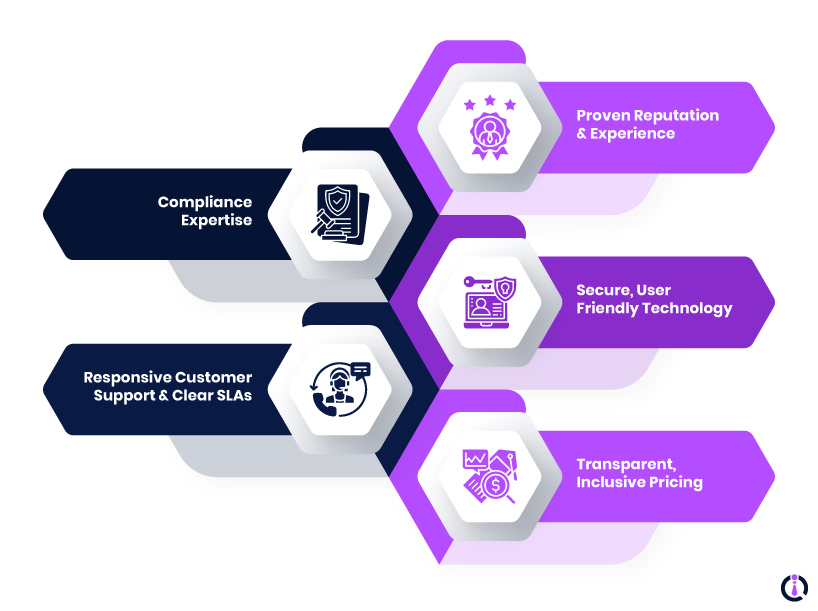
Not all payroll outsourcing providers are created equal. Picking the right one can save you time, money, and stress, while the wrong choice may lead to more problems than solutions. Here’s what to look for.
Proven Reputation and Experience
Choose a provider with a solid track record and positive reviews from other businesses. Bonus points if they have experience in your industry, since they’ll already understand the unique payroll rules and challenges you face. Checking references or case studies can also give you confidence that they consistently deliver accurate and timely payroll services.
Compliance Expertise
Payroll laws and tax regulations change often. A reliable provider should stay on top of these updates and manage filings accurately, so your business avoids penalties. Ask if they have a dedicated compliance team or certified payroll specialists. It’s also helpful to periodically review your own payroll reports and filings to ensure everything aligns with current regulations.
Secure, User-Friendly Technology
The right provider should offer:
- Strong data security, including encryption, backups, and restricted access
- Easy-to-use platforms for both you and your employees
- Smooth integration with your existing applications, such as compensation management software
This makes payroll more efficient and less stressful.
Responsive Customer Support and Clear SLAs
Problems happen, but they shouldn’t derail your business. Look for providers that offer:
- Clear service level agreements (SLAs)
- Dedicated account managers
- Responsive customer support across multiple channels, including chat, phone, and email
These features ensure quick resolutions when issues pop up.
Transparent, Inclusive Pricing
Avoid surprises by choosing a provider with clear, upfront pricing. The best providers list everything included in the package and don’t hide fees for essentials like tax filing, reporting, or integration with international payroll software. Predictable costs help you budget better.
Checklist: 10 Questions To Ask Before You Sign
- Do you have experience handling payroll for businesses in my industry?
- How do you stay updated with changing tax laws and regulations?
- What security measures do you use to protect sensitive data?
- What’s included in your pricing, and what costs extra?
- How quickly can we expect support if an issue arises?
- Can your system integrate with our current HR apps or accounting software?
- How do you handle errors or discrepancies if they occur?
- What kind of reporting and analytics will we have access to?
- Will employees be able to access payslips, tax forms, and personal details online?
- How do you support payroll for remote workers or global teams if our business expands?
Payroll outsourcing is more than just convenience. It’s about saving time, reducing errors, staying compliant, and giving your team the freedom to focus on what matters most. As businesses grow and regulations keep changing, having the right payroll partner can make all the difference.
FindHR helps you connect with trusted payroll outsourcing providers that fit your business needs, whether you’re a small startup or managing teams across borders. Our experts can guide you through the options, answer your questions, and help you choose a solution that’s secure, reliable, and cost-effective. Talk to our experts today and see how payroll outsourcing can simplify your business operations.
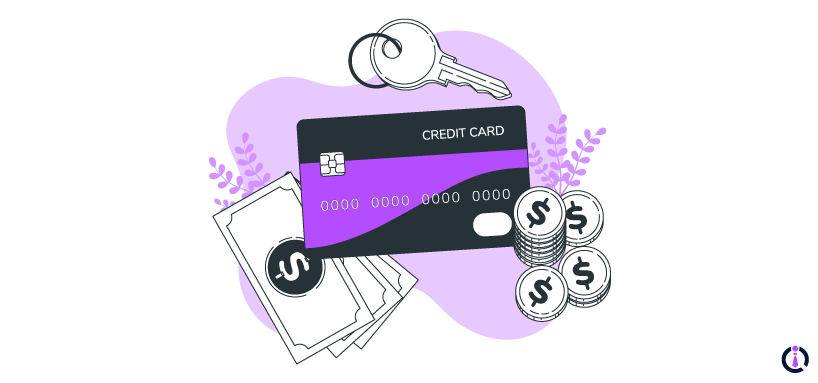
Payroll outsourcing can raise a lot of questions. Here are answers to some of the most common questions people ask.
How Quickly Can I Switch to an Outsourced Payroll Provider?
Most providers can get you set up in a few weeks, depending on the size of your company and how complex your payroll is. Small businesses can often switch within one or two pay cycles, while larger companies may need a little more time to transfer data and integrate systems.
What Happens if There Is a Payroll Error — Who Is Responsible?
Good providers take responsibility for fixing errors quickly. Many also offer guarantees to cover penalties caused by their mistakes. That said, you’ll still need to provide accurate employee and timekeeping data to avoid issues on your end.
Can Payroll Outsourcing Support Multi-Country or Global Payroll Requirements?
Yes, many providers offer international payroll software that handles multiple currencies, varying tax laws, and country-specific compliance requirements. This is especially useful for businesses with remote or global teams. Some even offer integrations with your existing system, like benefits administration software .
What Kind of Reporting and Analytics Will I Have Access to?
You’ll usually get detailed reports on wages, tax withholdings, benefits, and labor costs. Some providers also offer dashboards with real-time analytics, which can help with budgeting, forecasting, and even succession planning software for HR.
Will Employees Be Able To Access Their Payslips and Tax Information Online?
Yes, most modern payroll providers include an employee self-service portal where staff can log in to view payslips, download tax forms, and update personal details. This reduces paperwork and saves HR teams valuable time.